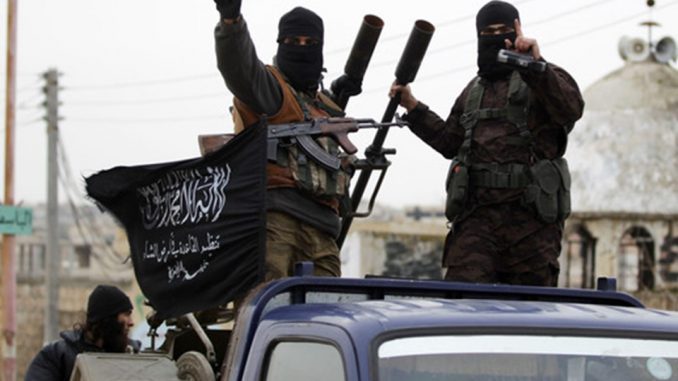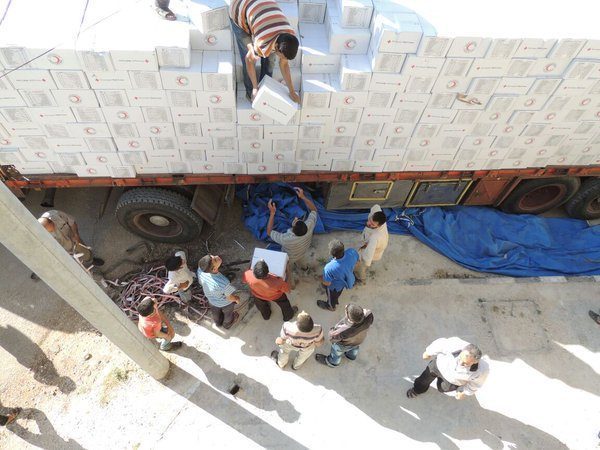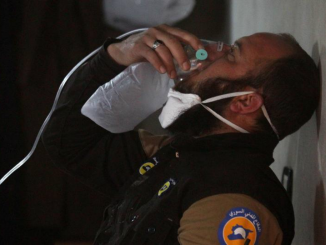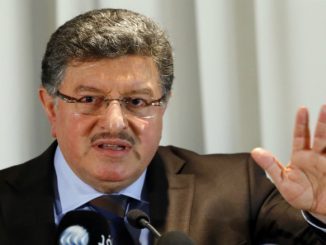
As the Assad regime said it is preparing for Idlib battle after retrieving Aleppo, many of Fatah al-Sham front leaders is being targeted and killed, giving a sign that this may be te first step to weaken this powerful force and ease the offensive.
The long months of crippling siege on 275.000 civilians in eastern Aleppo, starvation policy, daily bombardment, fierce clashes and bloody massacres ended when the Assad regime and its allies were able to oblige the rebels in Aleppo to surrender and make an agreement to leave the area they have been holding since 2012 after losing more than 90% of it.
More than 1500 civilians were killed and thousands were injured from September until the announcement of the ceasefire, and the residents had lived in great deprivation without functioning hospitals and with little electricity and water in freezing winter conditions.
The ceasefire agreement was a result of talks between Russia and Turkey.
As part of an agreement between Turkey and Russia, 40.000 of rebels and civilians were evacuated from eastern Aleppo to rebel-held Idlib, allowing the Assad regime to take full control of the city after years of fighting.
After Aleppo, Idlib became the next aim and Assad regime has already started to prepare for the battle with daily bombing and massacres since months. The number of deaths rose sharply in October.
Other than Aleppo fighters, rebels from different areas around Syria were given also safe passages to Idlib, after Assad regime with his backers’ support recaptured many key areas from rebels, including suburbs of the capital in what Damascus calls “reconciliation” deals.
What made Idlib as an ideal next target was the exclusion of Jabhat Fatah al-Sham from the nation-wide ceasefire agreement guaranteed by Russia and Turkey, as Fatah al-Sham is one of biggest factions fighting there.
Open Idlib battle
Ali Haidar, who as national reconciliation minister has been responsible for negotiating local deals, said that his government is prepared for “open battle” against insurgents in the province.
Idlib province at the border with Turkey is almost entirely controlled by rebel groups fighting to topple Assad, including powerful Islamist factions such as Ahrar al-Sham and Fateh al-Sham, formally known as the al Qaeda-linked Nusra Front.
Around Damascus, the pace of local deals has picked up in recent months, notably since rebels agreed to leave Daraya southwest of the capital in August for Idlib some 300 km (200 miles) away.
Rebels now face the firepower of an army backed by Russian air support and ground troops from Iran and Lebanon’s Hezbollah movement. Haidar said more local deals were being concluded as armed groups found the “horizon” closing in on them.
Haidar said some 10,000 fighters had been given safe passage to Idlib so far from areas other than Aleppo, and expected more accords in coming months to send thousands of fighters to Idlib from areas near Damascus and south of it, as the army advances.
“More will be sent to Idlib if we complete the reconciliations in the rural Damascus areas, Deraa and Quneitra”.
However, gathering the rebels in Idlib is just a temporaru step according to Haidar.
He said the state could not allow Idlib to remain in insurgent hands indefinitely. Unless there was an international deal that addressed the situation, “then the other option is to go to an open battle with them”, he said.
“The Syrian state is clear in its policy when it said it will not forego any patch of Syria, and I think Idlib is one of the coming hot areas,” Haidar told Reuters.
Targeting Fatah al-Sham
Russian President Vladimir Putin said that that Syrian opposition groups and the Syrian government had signed a number of documents including a ceasefire deal that will be guaranteed by Turkey and Russia.
However, the ceasefire excluded both ISIS and Fatah al-Sham, giving a chance to attack the areas they control without breaching the ceasefire.
During the past few days, Fatah al-Sham was targeted more than once.
Earlier in January, Airstrikes in northern Syria have killed at least 25 members of the group according to monitors.
The Observatory for Human Rights said it could not determine if the strikes, in the countryside of Idlib province, were carried out by the US-led coalition or Russia.
Among the dead were leading members of Jabhat Fateh al-Sham, which was holding a meeting there, the Observatory added, without identifying them. Many others were wounded, it said.
Abu Anas al-Shami, a Jabhat Fateh al-Sham spokesman, said in a statement the attacks were carried out by the US-led coalition.
“The headquarters targeted by the international coalition a short time ago are main headquarters for that area and contains a number branch offices, leading to the killing of the brothers,” he said in a statement quoted by Reuters news agency.
Another airstrike believed to be conducted by a drone from the US-led coalitions killed Friday a commander in Jabhat Fatah al-Sham and his teenage son in Taftanaz northeast of Idlib, according to Orient News correspondent.
#BREAKING : #Assad warplanes drop leaflets on #Idlib reading: "No place for al-Nusra Front in #Syria" pic.twitter.com/ZBfyqHXR4M
— Orient News English (@OrientNewsEn) January 6, 2017
Some analysts say that these attacks are preparations for Idlib battle. Be targeting Fatah al-Sham leaders its forces can be weakened and the battle will be easier.
Others say that this is a move to sideline Fatah al-Sham in Idlib by weakening it, to prevent its intervention in the future agreements between the rebels and Assad regime. Such agreements are expected as results of the peace talks that Russia and Turkey will hold in Kazakhstan. However, Fatah al-Sham is expected to refuse these solutions and prevent other rebel groups from abiding it.
The Syrian crisis began as a peaceful demonstration against the injustice in Syria. Assad regime used to fire power and violence against the civilians and led to armed resistance. 450.000 Syrians lost their lives in the past five years according to UN estimates, and more than 12 million have lost their homes.



